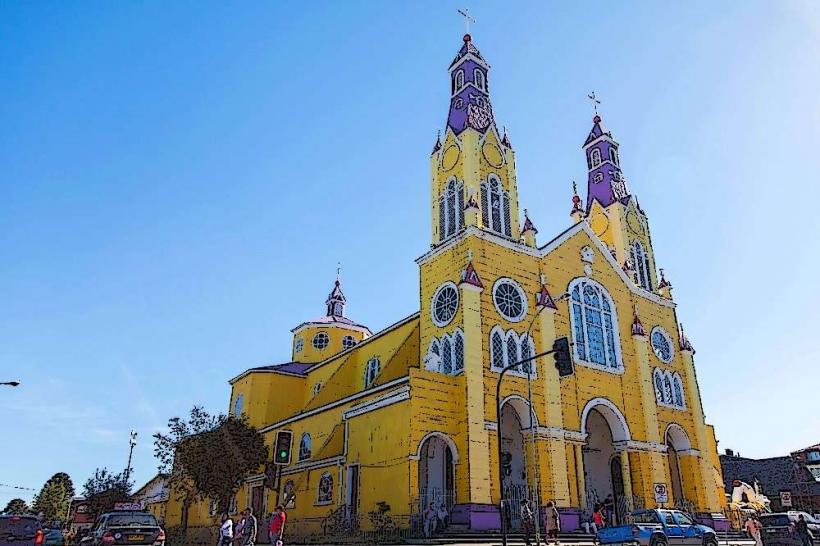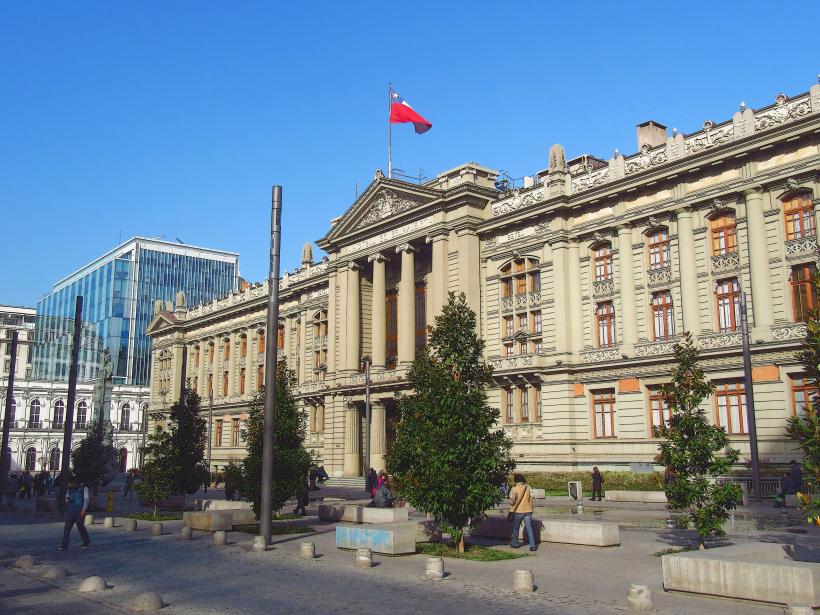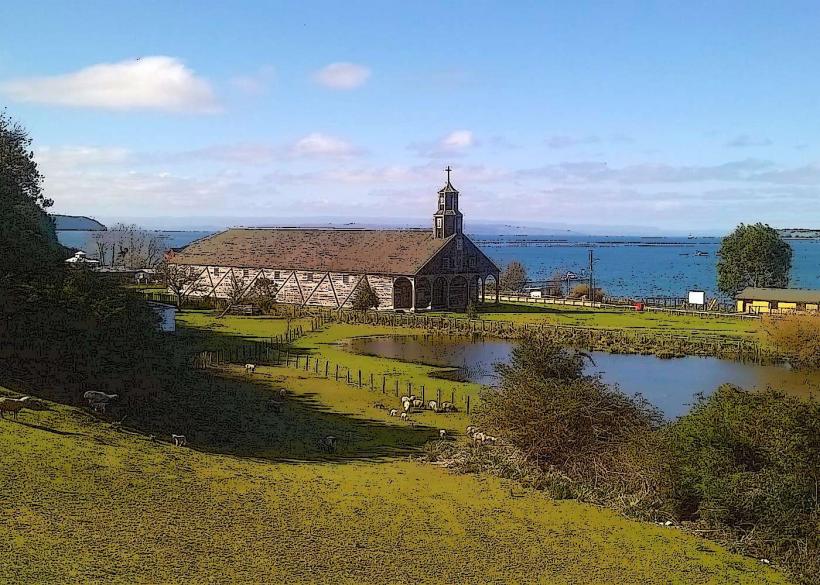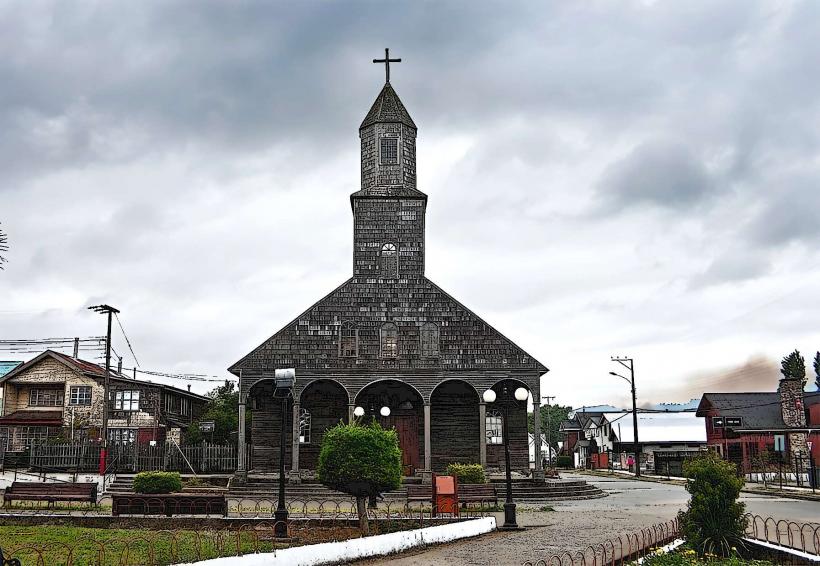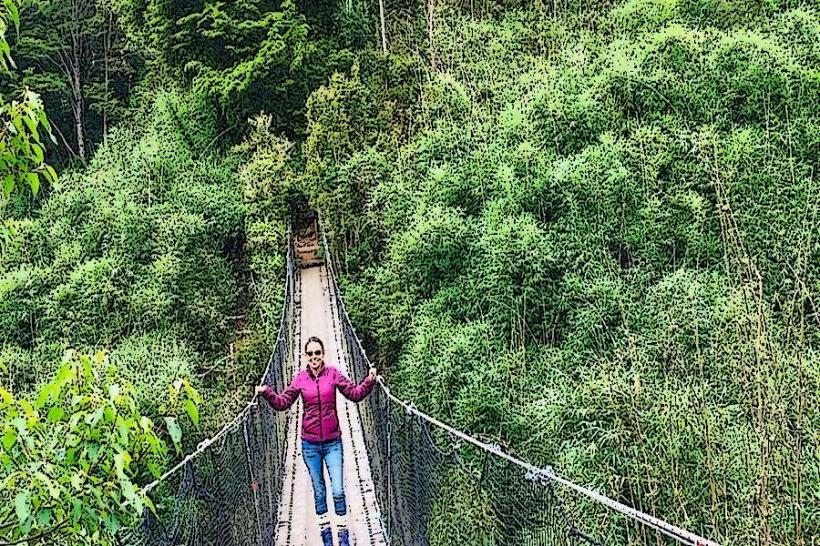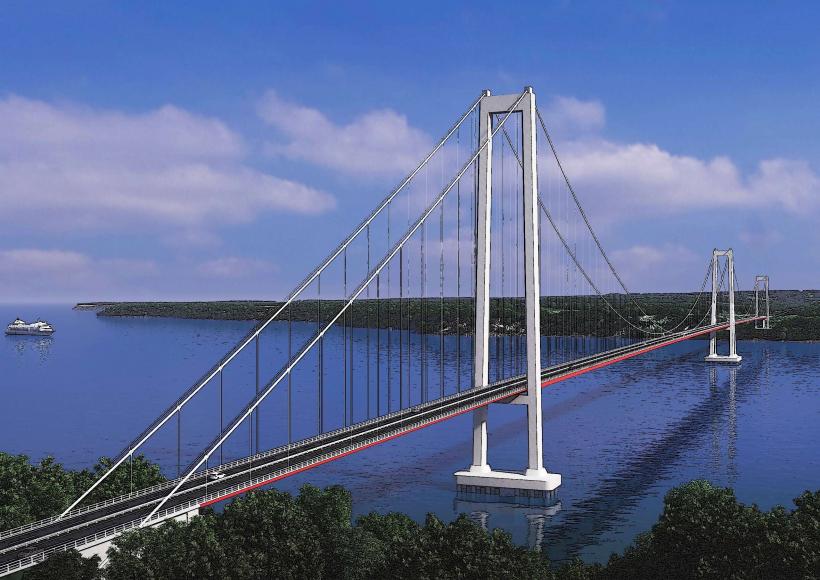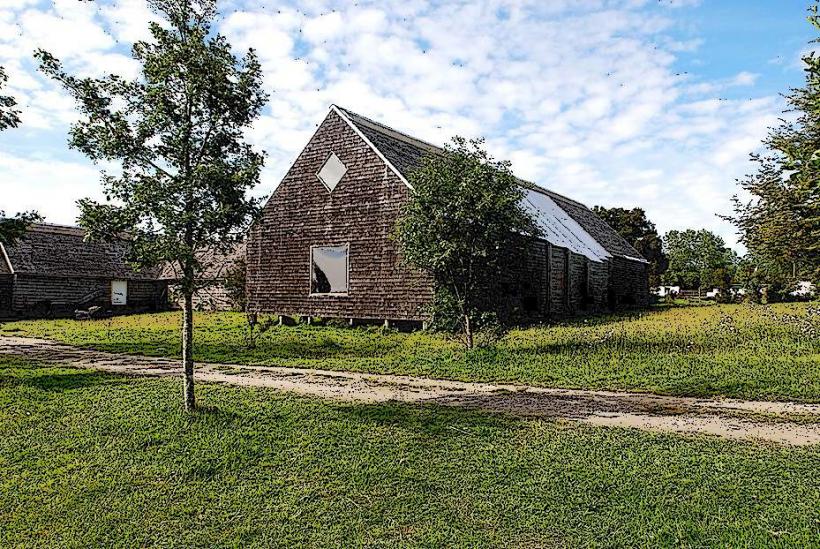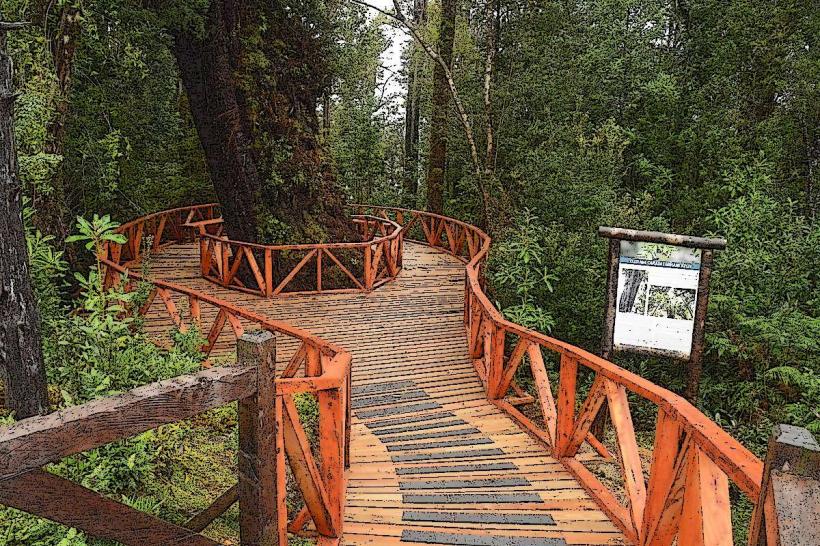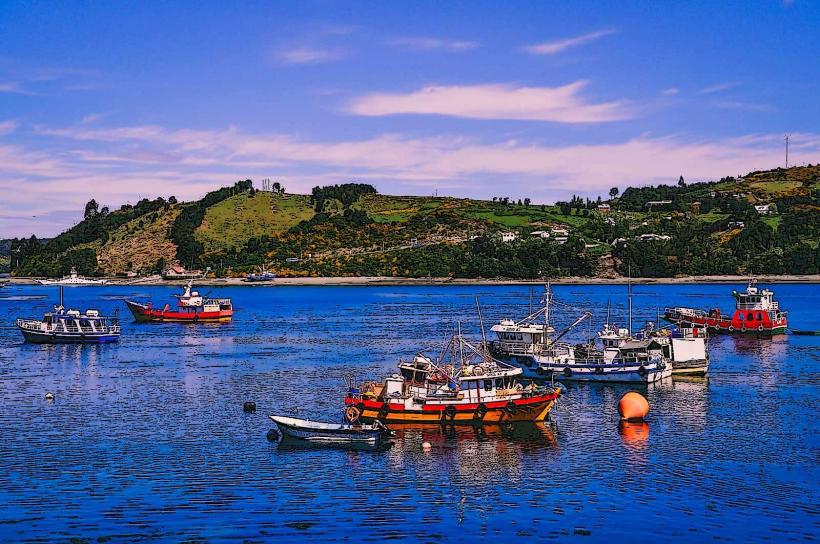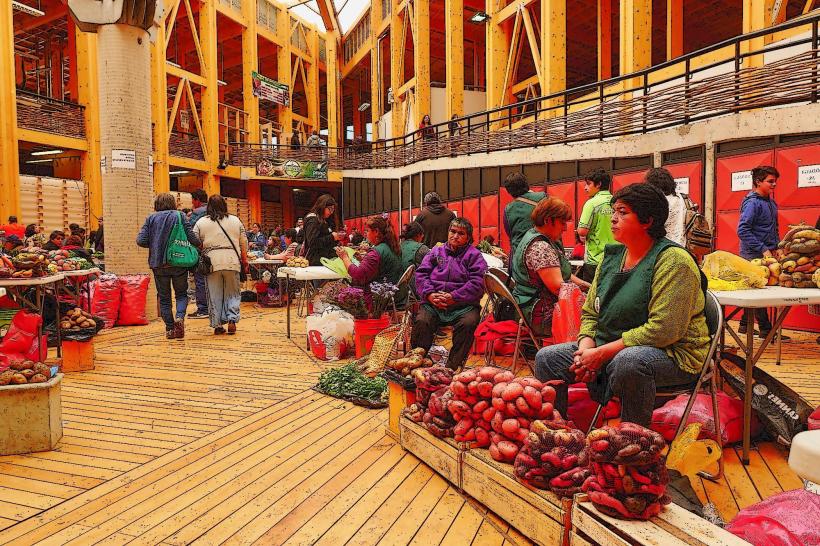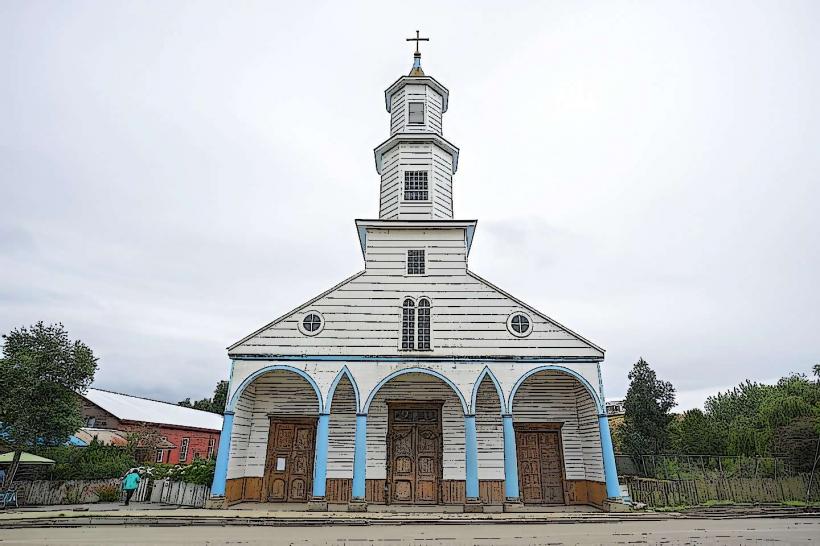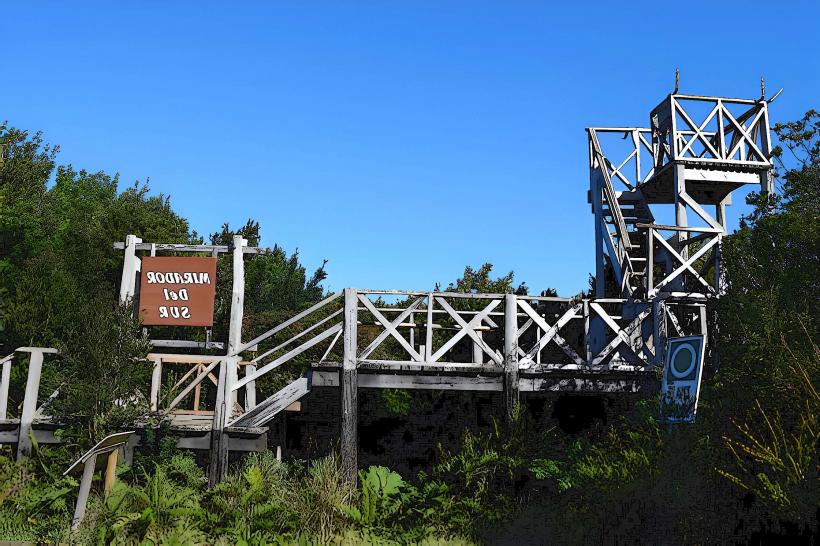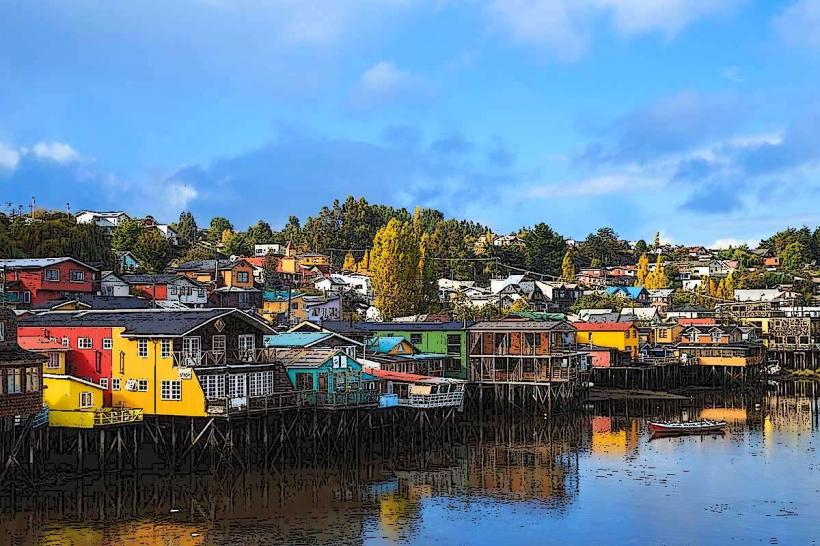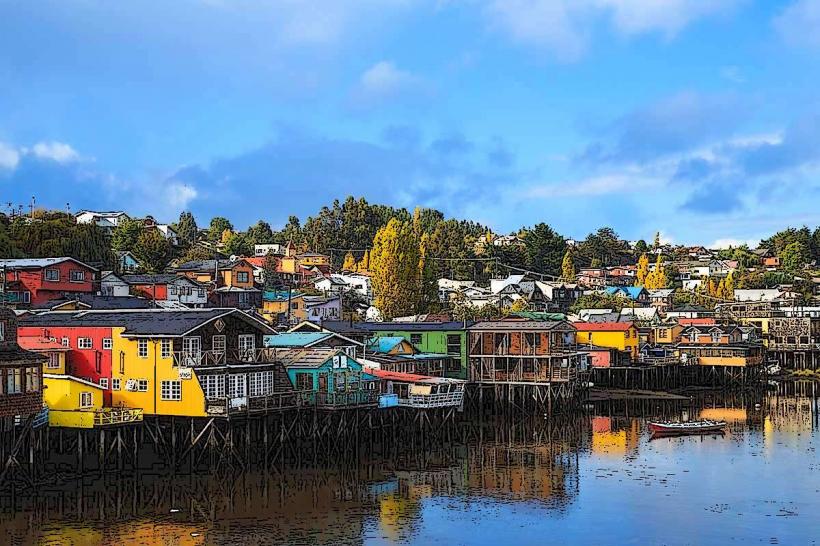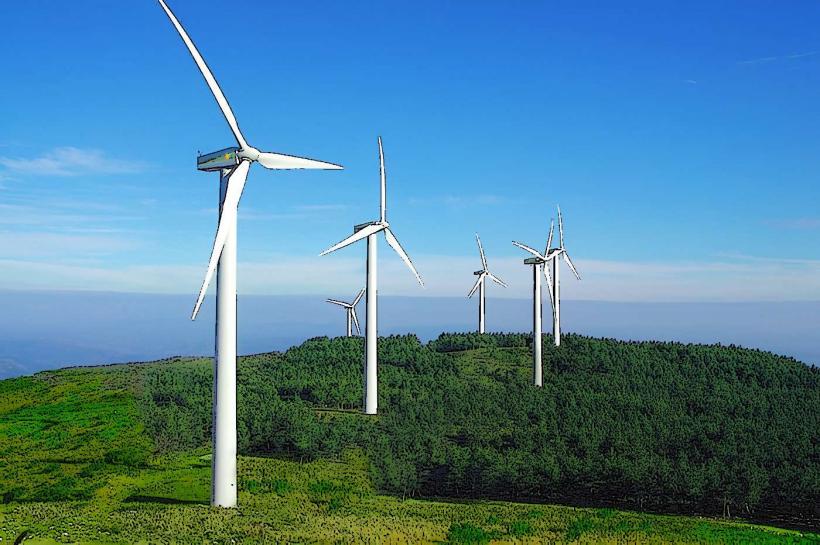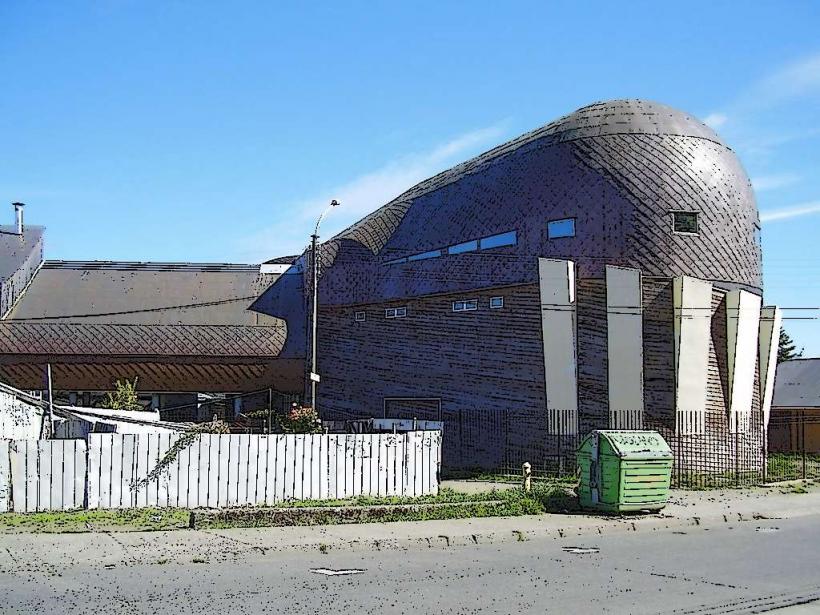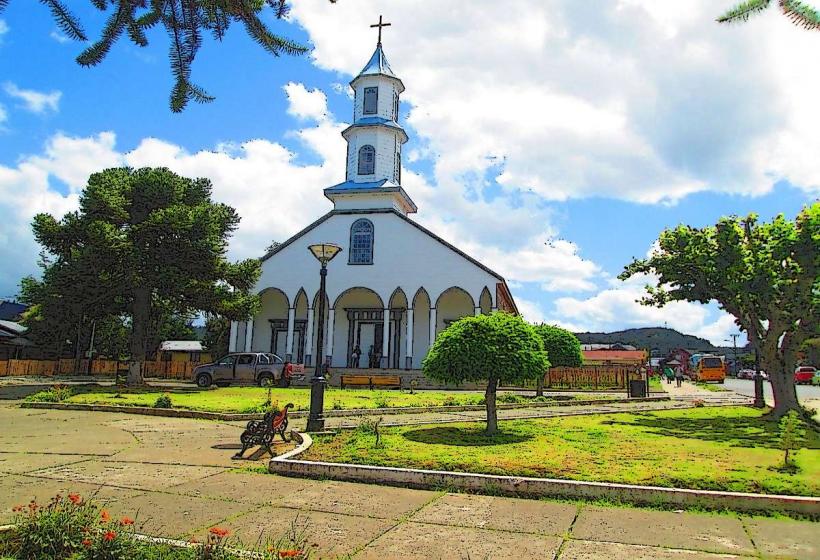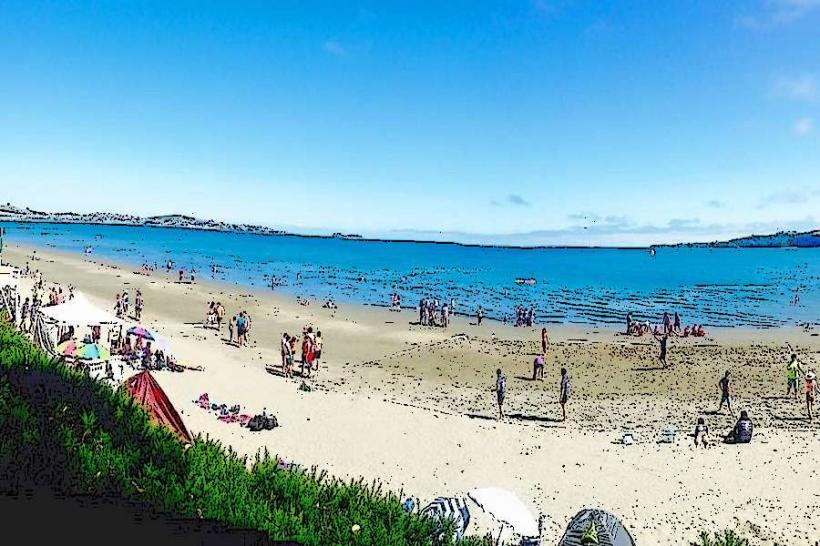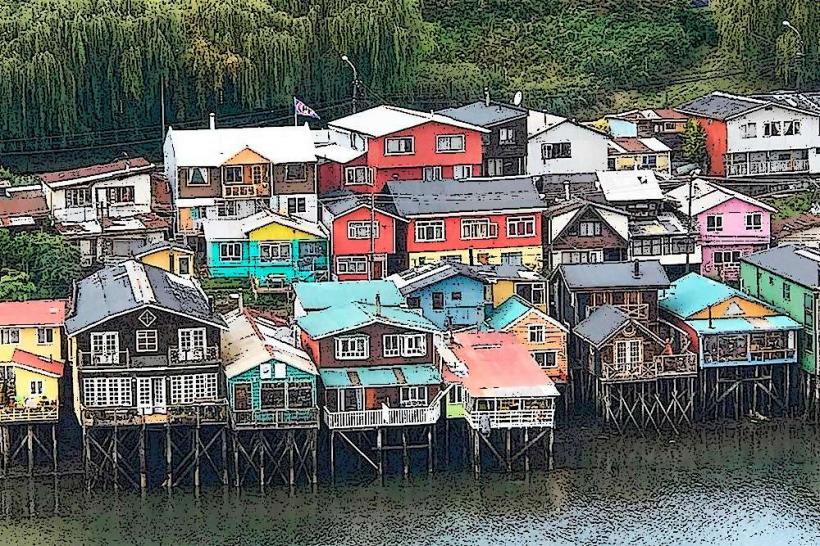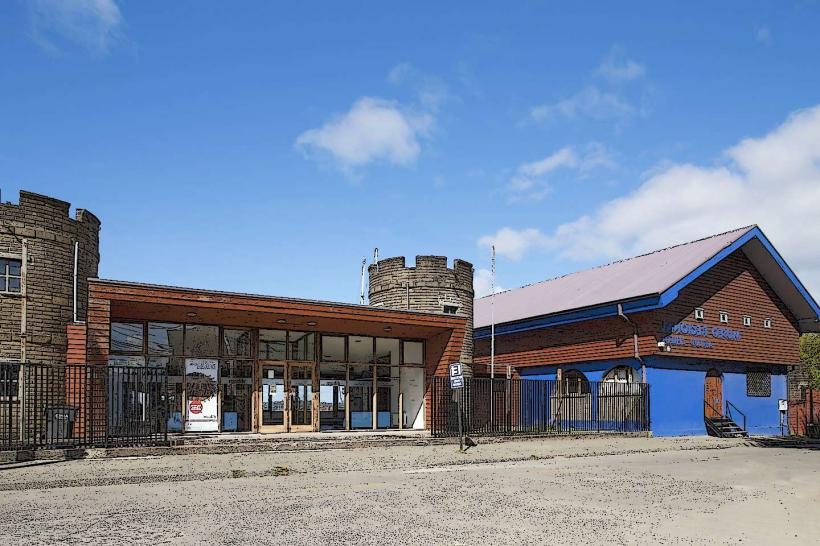Information
Landmark: Playa de CucaoCity: Chiloe
Country: Chile
Continent: South America
Playa de Cucao, Chiloe, Chile, South America
Playa de Cucao: A Serene Coastal Gem in Chiloé
Playa de Cucao is a beautiful and relatively undiscovered beach located in the western part of Isla Grande de Chiloé, Chile. This scenic beach is famous for its vast landscapes, untouched beauty, and the peaceful environment that draws visitors looking for a tranquil escape in nature. It lies within the Chiloé National Park and is part of the Cucao sector, which offers a unique experience of coastal ecosystems, rainforests, and wildlife.
1. Location and Accessibility
Playa de Cucao is located near the town of Cucao, which is about 30 kilometers west of Castro, the capital of Chiloé. The beach is easily accessible by car via the V-65 Route from Castro, which takes around 45 minutes to an hour depending on the weather and road conditions. The drive to Cucao itself is picturesque, as it takes visitors through parts of Chiloé National Park, offering glimpses of dense forests, wetlands, and rolling hills.
2. Natural Beauty and Features
Playa de Cucao is a long, wide beach with soft, golden sand that stretches along the Pacific Ocean. The beach is surrounded by lush forests and the wetlands of Chiloé National Park, making it an ideal location for nature lovers and those seeking peace and solitude.
a) Coastal Landscape
The beach is bordered by dramatic cliffs and sand dunes, which give the area a wild and untamed atmosphere. The ocean waves that crash against the shore are often powerful, making it a popular spot for surfing enthusiasts, although it is important to note that the water is cold, even in the warmer months, and can be dangerous for swimmers due to the strong currents.
b) Flora and Fauna
The surrounding environment is rich in flora and fauna, which includes a mix of temperate rainforests, wetlands, and coastal vegetation. The park is home to a variety of bird species, including black-necked swans, pelicans, and sea gulls, making it a great destination for birdwatching. It’s also possible to spot sea lions and dolphins off the coast, especially during the colder months when the wildlife is more active.
3. Chiloé National Park
Playa de Cucao lies within the bounds of Chiloé National Park, one of Chile's most significant national parks. The park covers an area of more than 43,000 hectares of forests, wetlands, and coastal areas, making it an important conservation area for the island's biodiversity. The park is also home to several trails and ecological routes that allow visitors to explore the rainforests, lakes, and beaches in the area.
A popular activity for visitors to Playa de Cucao is to hike through the national park’s trails, which offer varying levels of difficulty and provide excellent opportunities to witness Chilote wildlife and the diverse ecosystems of the park.
4. Activities and Things to Do
Beach walks and photography: Playa de Cucao offers miles of pristine beach to explore on foot. The unique coastal landscape, with the ocean meeting the sand dunes and the surrounding forests, is a perfect setting for photography or simply relaxing in nature.
Surfing: Although the waves can be rough and the water cold, surfing is a popular activity on Playa de Cucao. The beach is frequented by both locals and tourists looking to enjoy the powerful waves. Surfing schools in the area offer lessons for those new to the sport.
Birdwatching: The surrounding wetlands and forests are prime areas for birdwatching. With a variety of species found in the area, including native Chilote birds and migratory species, it’s a paradise for those interested in observing local wildlife.
Hiking and Nature Walks: The Chiloé National Park provides a number of hiking trails around Cucao, many of which pass through dense native forests, along riverbanks, and offer scenic views of the coastline. Visitors can enjoy short walks or longer treks through the park.
Fishing: The waters around Playa de Cucao are rich with marine life, and fishing is a popular activity in the area. The beach and its nearby rivers are well-known for providing fresh fish, including salmon and sea bass, as well as various shellfish.
5. Visiting Tips
Weather: The weather at Playa de Cucao can be unpredictable, with frequent rainfall and strong winds, especially in the winter months (April to September). Make sure to pack waterproof clothing, sturdy shoes, and layers to stay comfortable during your visit.
Stay Safe: While the beach is stunning, the ocean can be dangerous due to its strong currents and low water temperature. Visitors should avoid swimming or take necessary precautions if planning to surf.
Bring Supplies: The town of Cucao is small, and while there are some basic services, it's recommended to bring any necessary supplies, such as food, water, and first-aid kits, especially if planning to explore the park or stay for an extended period.
6. Best Time to Visit
The best time to visit Playa de Cucao is during the spring and summer months (November to March), when the weather is milder, and the days are longer. However, the beach and its surroundings are captivating year-round, so visitors interested in a quieter and more solitary experience might prefer the autumn or winter months (April to June), despite the colder and rainier conditions.
7. How to Get There
To get to Playa de Cucao, take the V-65 Route from Castro, heading west toward the town of Cucao. The beach is located near the town, and the journey takes around 45 minutes to an hour by car. Public buses to Cucao are also available from Castro, though car rental provides more flexibility to explore the surrounding areas.
Conclusion
Playa de Cucao is one of the hidden gems of Chiloé, offering a perfect combination of untouched beauty, wildlife, and tranquility. Whether you're hiking through Chiloé National Park, enjoying the natural surroundings, or simply relaxing on the beach, it’s an ideal destination for nature lovers, photographers, and adventurers seeking to immerse themselves in the rugged beauty of Chiloé's coastline.

